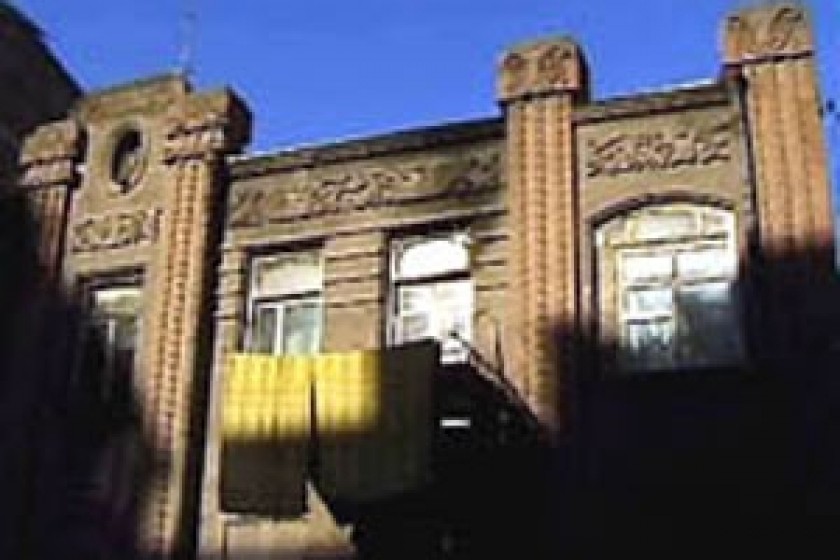
The Armenian sex trade - 4
Gegham Vardanyan
A history of prostitution in Armenia
At the beginning of the 20 th century, prostitution existed officially and there were brothels operating in Yerevan. One of the buildings is preserved on Teryan Street. Residents are aware of its history; they point out figures of naked women engraved on the front wall to skeptics.
One of the documents in Armenia's State Archives is a 1903 circular order by the Minister of Internal Affairs of the Russian Empire concerning the control of prostitution in the cities of the Empire. Upon receipt of this order, the governor of Erivan (Yerevan) instructed the city Duma (council) to discuss the matter.
There was no need for the municipal officials of Yerevan at the time to invent new methods of fighting prostitution. Since the mid-19 th century, medical-police commissions had been combating prostitution in Moscow, St. Petersburg and other big Russian cities. The regulations of those commissions, which identified prostitutes and sent them for treatment, stated: "The most important thing in this endeavor is the sanitary aspect. Police involvement is necessary to ensure the success of sanitary methods. But improperly strict police methods will only contribute to an increase in secret prostitution, and a lack of necessary caution may dishonor a woman and cause irreparable damage. For this reason, it is not permissible to organize round-ups of prostitutes on the streets."
In those years, a woman had to be at least thirty-five to open a brothel. All she had to do was submit an application to the medical-police commission and present her passport and a document from the police stating that there was no obstacles to opening the house. The state clearly regulated the sex trade. A house could not operate within 150 sazhens (1 sazhen = 2.13 meters) from churches, schools, and other public places. The owner of the house could not engage in prostitution herself, and was supposed to prohibit the maids and watchwomen from doing so. The owner could not demand more than three-fourths of the money the women for her earned. She was required to live in one of the apartments of the establishment. If she was married, her husband could live in the same apartment, but was prohibited from intervening in the household affairs. No children over the age of three were allowed to live with her in the house.
In Soviet times, the state didn't admit that prostitutes existed. Since there was "no sex in the Soviet Union", no criminal or administrative punishment was envisioned for prostitution. Only under Gorbachev, in 1987, was the Administrative Code amended to include an article on engaging in prostitution, and a fine of 100 to 200 rubles for prostitution introduced.
To legalizing prostitution or not?
Fifty-year-old Zara has been a prostitute for ten years. She summarizes the current attitude towards prostitutes as follows: "Society think that we deserve to be killed, thrown away, or burned. They don't realize that we are from the same society, and we were forced to become prostitutes. If you have no job, you have to do something; if you have no job, you have to sell your body."
Zara and her friends are in favor of legalizing their profession. They believe that houses of prostitution will protect them from cruel treatment by clients and persecution by policemen, and will bring stability into their lives.
Police Officer Tigran Petrosyan has been dealing with this issue for eight years. He does not believe that prostitution should be legalized, but says prohibition is no solution, either. "I don't think there is a need for criminal punishment, but I'm in favor of administrative punishment. Ceratain places and times should be designated in which the punishment for engaging in prostitution should be stricter. For example, public parks, or near schools," he says.
Until the issue of prostitution is resolved, the state demands that the women who engaged in it be invisible, and the women try to obey this unwritten law. Like many businesses in Armenia, the sex trade flourishes in the shadows.
 Videos
Videos Photos
Photos
Write a comment